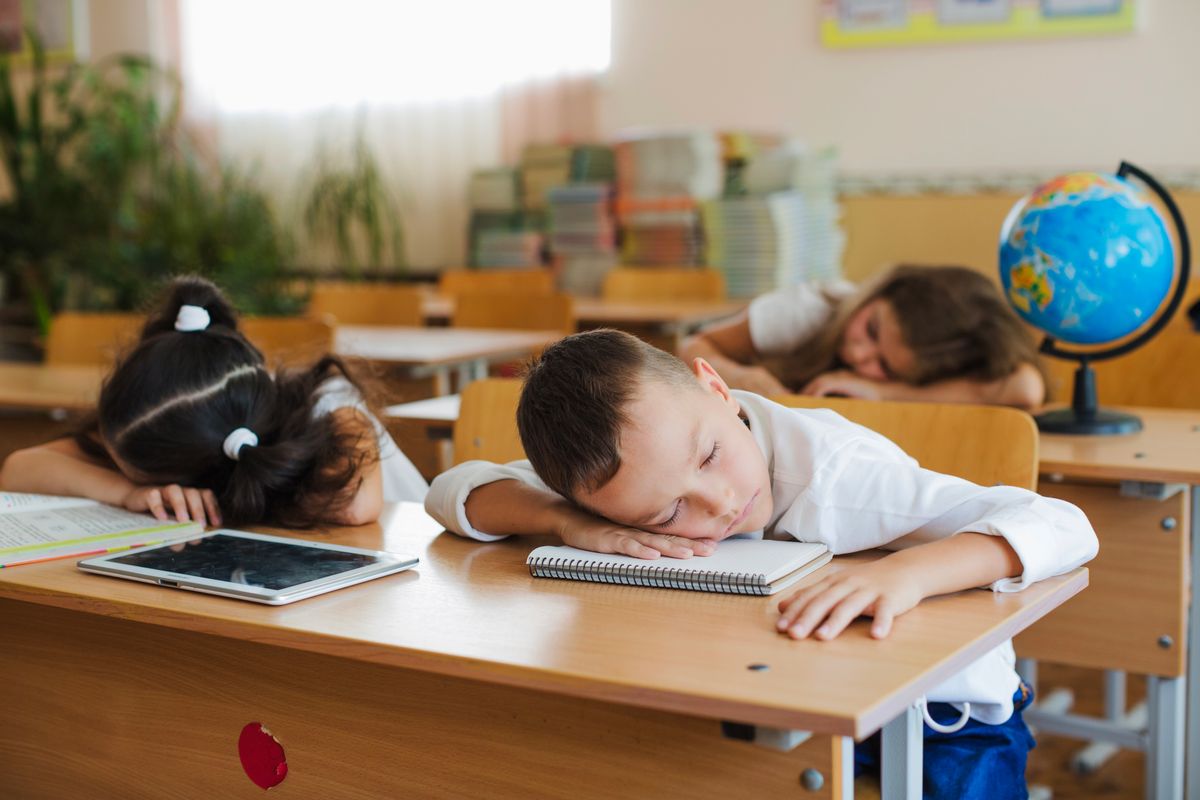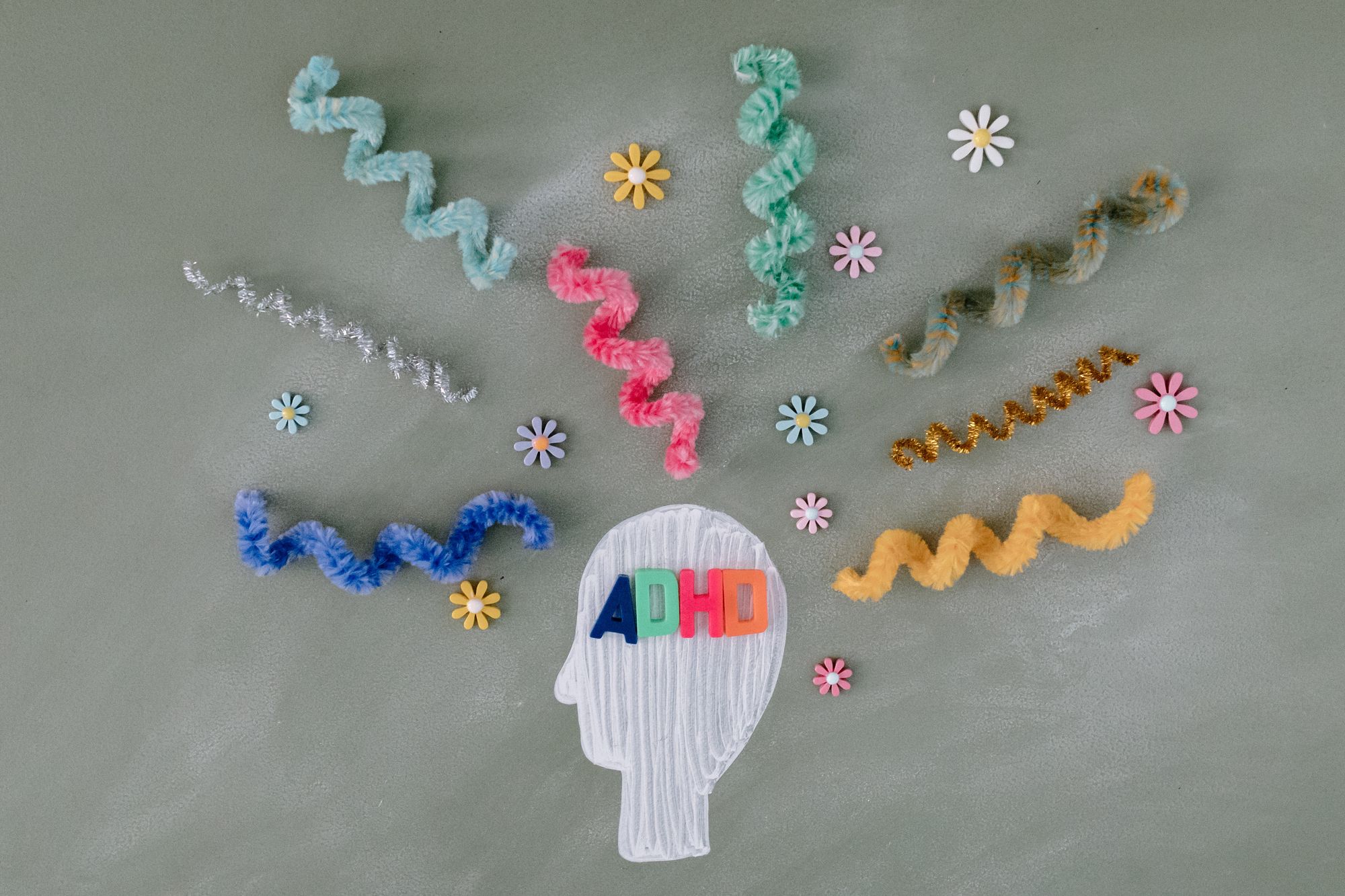Here's how to stop sleeping in class

I get it, you've had a rough night studying or playing games. Maintaining a sleep schedule and keeping yourself awake in class is hard. You'll become even sleepier during classes you don't have an interest in. During these times it's important to stay awake, as you may miss key information or even get in trouble. In fact, as I'm sitting in a class writing this post, I'm almost about to fall asleep myself. So in this post, I will share with you how I stay awake and stop myself from sleeping in class, using strategies at home and in class.
Source: Centers for Disease Control and Prevention
At home
Sleeping on time is the key factor to not falling asleep in class, but it can be hard for us, especially students. When you get home, try to think about what you plan to do for the rest of the day. I tend to spend some time doing stuff on the computer and hanging out while allocating 2 hours to my homework. Work out a schedule that works for you. Then, figure out what time you plan to go to sleep, remember that you should be in bed a little earlier as it will take you a few minutes to actually fall asleep. For teenagers, it's recommended to sleep 8-10 hours. You might want to sleep longer than this, so work that into your schedule if you feel you need more sleep. But at a minimum, you should aim to get 8 hours of sleep.
Sometimes, studying can cause us to stay up at night. However, there is time to study even without doing this. Sometimes it may be helpful to tackle the studying as soon as you get home, so you can figure out any problems you have and call on a friend for help. If you make your learning more efficient, then you won't need to stay up all night and spend a ton of time trying to figure out your work. That's why I recommend doing it before 8pm because after that people will usually start to get busy and then you might not get help. If you can, try tackling the problem with a friend in class if you have free time. If you find you are experiencing some stress with your academics see this article for advice.

The next problem is with playing games at night. While playing before sleeping does not show any effects, I discourage this not because of the things our parents say but because it's just not efficient if you really want a better experience. Not only does it build an unhealthy habit but your skill will be drastically affected if you deprive your body of rest. While games vary in difficulty, they become harder when you can't think clearly, and sleeping less will make it harder to play any games. That's why you should try playing less and maintaining a balance. Without this balance, you will face health issues, and you will struggle with building up skills in your games.
The last problem we should tackle is exposing ourselves to lights. An article from the National Institute of Health reveals that light exposure at night can be a seriously damaging thing. When you shine a light or look at your phone in bed, your body registers this time as the time that it should stay awake. This confusion makes sleeping on time even harder and will lead to increased sleep problems. According to the article, "Studies suggest that light exposure at night can disrupt the body’s normal circadian rhythm, the 24-hour internal body clock that controls your sleep/wake cycle. This can trigger a cascade of metabolic or biochemical changes that affect glucose and cardiovascular regulation, boosting the risk of heart disease," which also highlights a few health problems that can also occur as side effects.
In class
If you are struggling with sleeping in class, then you need to do something to keep yourself awake. Preventing yourself from sleeping is all about keeping your body working. I've listed some ways to do that down below.
Writing or doodling
Even if what you're writing or doodling has nothing to do with the class topic, it gives your body something to do and keeps you from spacing out during classes. You can also use these skills to engage yourself in the learning experience and take notes. You can use these things as a reference later so that you will be able to remember and learn more efficiently. Remember that efficient learning is one step to stopping all-nighters and getting a good sleep at night.
Asking questions
Think about what questions you can ask about the topic you are learning in class. Asking interesting questions allows you to engage with the topic and also keeps your brain awake because it brings you back to the class and what's being taught. This way you will be able to busy yourself and not cause your brain to fall asleep.
Bouncing your feet
Bouncing your feet is a way to keep yourself awake but not take away from the lesson. Do this quietly in class so your brain doesn't have a chance to fall asleep when the teacher is giving explanations. Even if you aren't interested in this topic, this strategy will work to keep your body moving and awake.
Stretching
Sometimes a good stretch really helps to wake up your body. Stretching not only helps your muscles but also gives temporary relief from tiredness. This is also important to do in your classes because it will aid your physical health. Just make sure when you stretch, it isn't a distraction to you or others in your class.
Drinking water
Bringing water to class is a great way of ensuring that you stay awake. A good slip of cold water will make you hydrated and further wake up your body. Not only this, water is a necessary thing for your body. Drinking water and appropriately managing your hydration are incredibly important for not just your academic health, but your physical health.
Chew gum
A lot of classes don't allow snacks in class but allow chewing gum. If you frequently fall asleep in class, then you can take some gum and improve your breath and stop yourself from sleeping as well.
In conclusion, there are many ways to avoid sleeping at home and at school. Maintaining a schedule and ensuring you're managing your time properly are key concepts. Another thing to remember is to study efficiently and ensure you can understand the topics, otherwise, you may be forced to spend a sleepless night studying the unit and you are at a higher chance of failing. Using this advice, we can all bring down the frequency of sleep deprivation among teens and help us perform and excel in our academics.
Find an issue with this article? Message us at [email protected] to report it!





